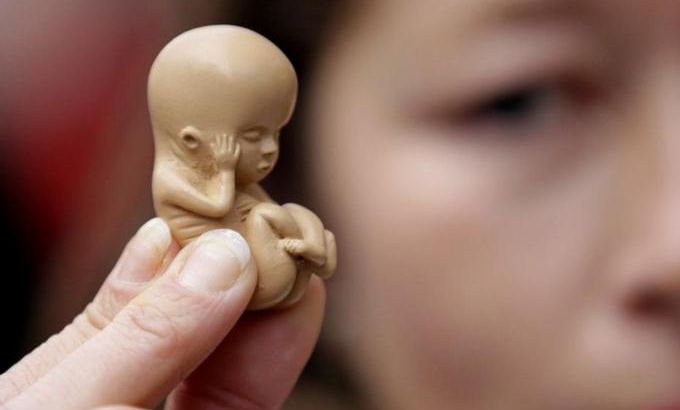
Ireland’s abortion controversy
The Irish parliament debates a controversial bill to allow abortion in limited circumstances for the first time.
Politicians in Ireland revisited the divisive issue of abortion in the predominantly Catholic nation after decades of delay and months of argument.The Irish parliament had been debating a bill allowing limited abortion for the first time.
The Catholic Church opposes all forms of abortion, believing in the sanctity of life. But Ireland has been coming under increasing pressure to clarify its own position and provide answers to supporters of both sides of this debate.
In 1992, Ireland’s Supreme Court ruled abortion should be legal where the mother’s life is at risk. That ruling followed the case of a 14-year-old girl who was denied an abortion after being raped.
”It
legislation deals with exclusively within abortion, if there was no other way to safe the life of a woman …. We’re not talking about social abortion … but if the alternative is that the mother and the unborn child with her dies.”]
Ireland’s laws faced further global scrutiny in October 2012, when a 31-year-old Indian woman died after allegedly having a request for a pregnancy termination refused.
This case led to the drafting of the Protection of Life During Pregnancy Bill. The bill allows for a termination when three doctors unanimously agree there is a real risk to the life of the mother. It also permits abortion if one obstetrician and two psychiatrists unanimously agree a pregnant woman is at risk of suicide.
Some lawmakers believe this latter clause of the bill is open to abuse, but other critics say the legislation fails to address issues such as rape or incest, and cases of foetal abnormality.
Abortion is a global issue, particularly in predominantly Catholic countries.
In Chile, President Sebastian Pinera caused controversy this week when he praised an 11-year-old rape victim for not aborting her pregnancy. The young girl who was raped over a period of two years by her mother’s partner, is now pregnant with his child.
Abortion is illegal in all circumstances in Chile. But comments by the president have reignited the debate over the country’s strict anti-abortion laws.
“I asked the health minister to personally watch over Belen’s health. Today she has been pregnant for 14 weeks and yesterday she surprised us all showing depth and maturity when she said that despite the pain that the man who raped her caused her, she was going to love and care for her baby,” said President Pinera.
Inside Story, with presenter Steven Cole, discusses with guests: Anthony McCarthy, from the Society for the Protection of Unborn Children; Sarah Malone, the spokesperson for the Abortion Rights Campaign; and Peter Williams, from Catholic Voices, a global network seeking to promote the Church’s image.
Editors note:
Soon after this programme aired, Ireland’s parliament voted in favour of a landmark legislation to allow abortion in limited cases where the mother’s life is at risk, including from suicide.
|
“I certainly don’t think it’s a medical issue … in England and Wales 97 percent of abortions carried out are for social reasons. Is the deliberate distruction of a new human being in pregnant woman medicine? Is that in line with hippocratic principles? It seems not. “I think we’re not talking about medicine at all. We’re talking about a social problem, a view about human life, human choices, a view about the sexual revolution and an attempt to basically undermine ideas of the sanctity of life.” – Anthony McCarthy, from the Society for the Protection of Unborn Children |